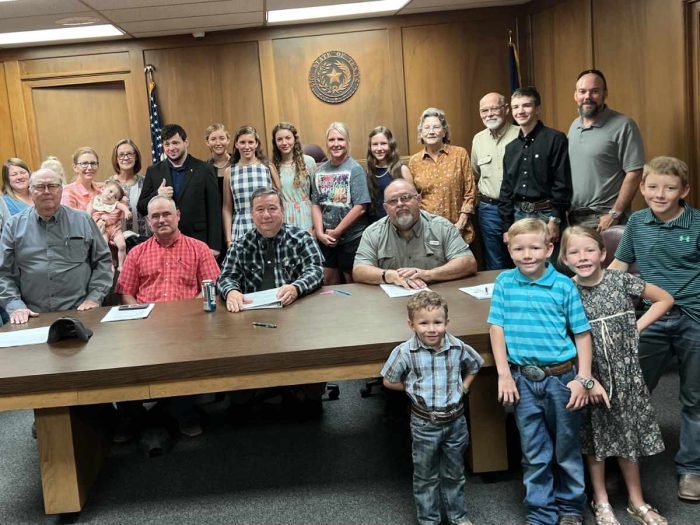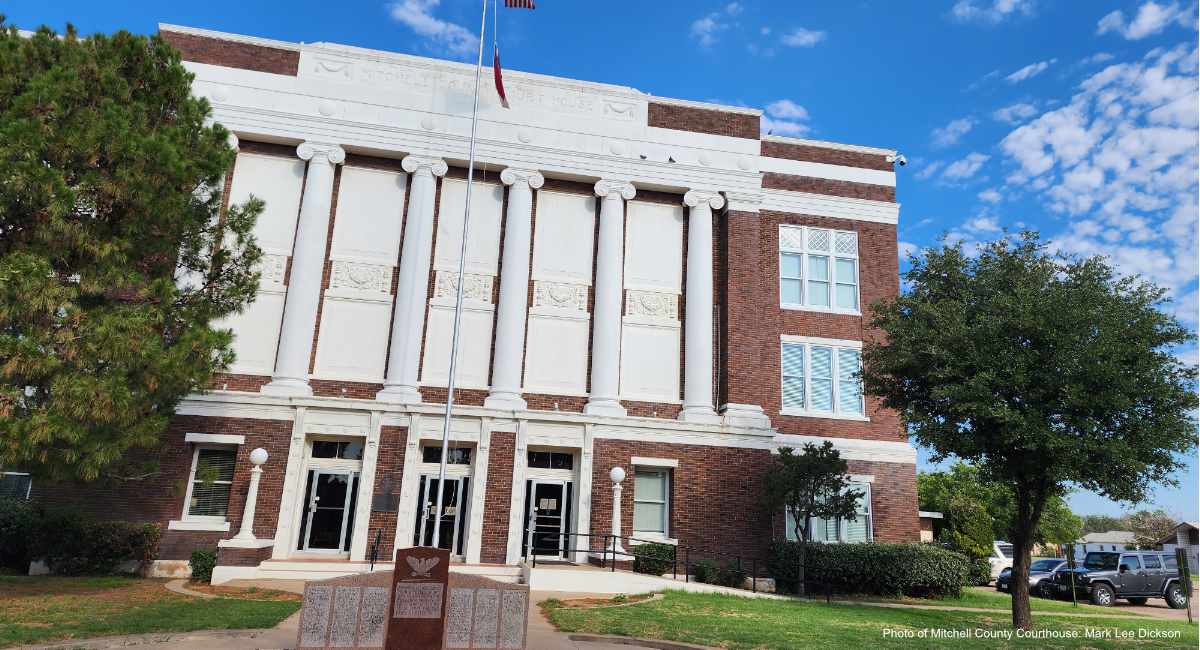Disclaimer: The opinions expressed in this guest post are solely those of the guest author.
Abortion trafficking is now outlawed in Mitchell County, Texas (pop. 9,070).
On the morning of Friday, July 14, the Mitchell County Commission voted in favor of adopting a Sanctuary County for the Unborn Ordinance “Outlawing Abortion Within the Unincorporated Area of Mitchell County.” Commissioner Jeremy Strain made the motion, and it was seconded by Commissioner Dennis Jones. The vote of the County Commission was unanimous, 4-0, with one commissioner in favor of the ordinance being unable to attend due to a prior engagement.
The passage of the ordinance makes Mitchell County the first county in Texas and the third county in the nation, to pass a Sanctuary County for the Unborn’ ordinance. The Sanctuary Cities for the Unborn initiative, which began with the City of Waskom in June of 2019, has now seen a total of 67 cities and three counties pass ordinances prohibiting abortion within their jurisdiction. While most of the political subdivisions which have passed the ordinances are in Texas, the initiative has also been embraced by local governments in Nebraska, New Mexico, Ohio, Louisiana, Iowa, and Illinois – with each ordinance being carefully written in accordance with the laws of each state.
During the 87th Legislative Session, the State of Texas explicitly allowed political subdivisions to outlaw and prohibit abortion, and to establish penalties and remedies against those who perform or enable unlawful abortions. The relevant statute, Texas Government Code § 311.036(b), reads, “A statute may not be construed to restrict a political subdivision from regulating or prohibiting abortion in a manner that is at least as stringent as the laws of this state unless the statute explicitly states that political subdivisions are prohibited from regulating or prohibiting abortion in the manner described by the statute.”

Mitchell County residents (Photo: Mark Lee Dickson)
In addition to prohibiting abortion within the unincorporated area of Mitchell County, the ordinance prohibits the performing of elective abortions and the aiding or abetting of abortions performed on residents of the unincorporated area of Mitchell County, “regardless of the location of the abortion, regardless of the law in the jurisdiction where the abortion occurred, and regardless of whether the person knew or should have known that the abortion was performed or induced on a resident of the unincorporated area of Mitchell County.”
The ordinance also prohibits abortion-inducing drugs within the unincorporated area of Mitchell County and prohibits abortion trafficking by making it unlawful “for any person to knowingly transport any individual for the purpose of providing or obtaining an elective abortion, regardless of where the elective abortion will occur.”
The abortion trafficking provision, which only applies if the transportation of such individual “begins, ends, or passes through the unincorporated area of Mitchell County,” makes it illegal for anyone to use the sections of Interstate 20, Hwy 84, and all other roads found in the unincorporated area of Mitchell County for the purpose of abortion trafficking.
This means that people who live within Mitchell County will not be allowed to drive people out of Mitchell County who are seeking obtain an elective abortion in another state – as such actions would be considered abortion trafficking. This provision also means that those who are transporting women from other parts of Texas, who are seeking to obtain an elective abortion in another state, cannot pass through Mitchell County – as those actions would also be considered abortion trafficking.
The ordinance, which is purely enforced by the creation of a private right of action, allows for any person (except for Mitchell County or their employees) to bring a civil action against any person or entity that violates or intends to violate the ordinance.
Like all previous ‘Sanctuary City for the Unborn’ Ordinances, the Mitchell County Ordinance does not allow for any lawsuit to be filed against the mother of the unborn child, but only allows for actions to be taken against those who are assisting her in the killing of her child — when they cross the unincorporated area of Mitchell County.
After the passage of the ordinance Commissioner Jeremy Strain shared, “What a monumental day for Mitchell County. I’m so excited that we get to lead the way for the state of Texas. We stand and fight for the unborn, the ones who can’t fight for themselves. I hope and pray other counties throughout the state will jump on board and lead by doing the same. God bless Mitchell County!”
Upon hearing the news, Representative Dustin Burrows shared, “I am proud that Mitchell County is the first county to declare itself a sanctuary for the unborn. This is a huge victory for the pro-life movement in Texas. Thank you to all of the grassroots advocates who worked tirelessly to make this a reality, and for the commissioners who showed political courage to vote this into law.”
Mitchell County is not expected to be the last county to consider a Sanctuary County for the Unborn ordinance. Counties across America are considering what actions they might take to protect pregnant mothers and their unborn children within their jurisdictions. Counties throughout the United States considering such measures include: Eastland County, Texas, Grayson County, Virginia, and Greenville County, South Carolina.
Editor’s Note, 7/16/23: This piece has been updated by the author for clarification.







